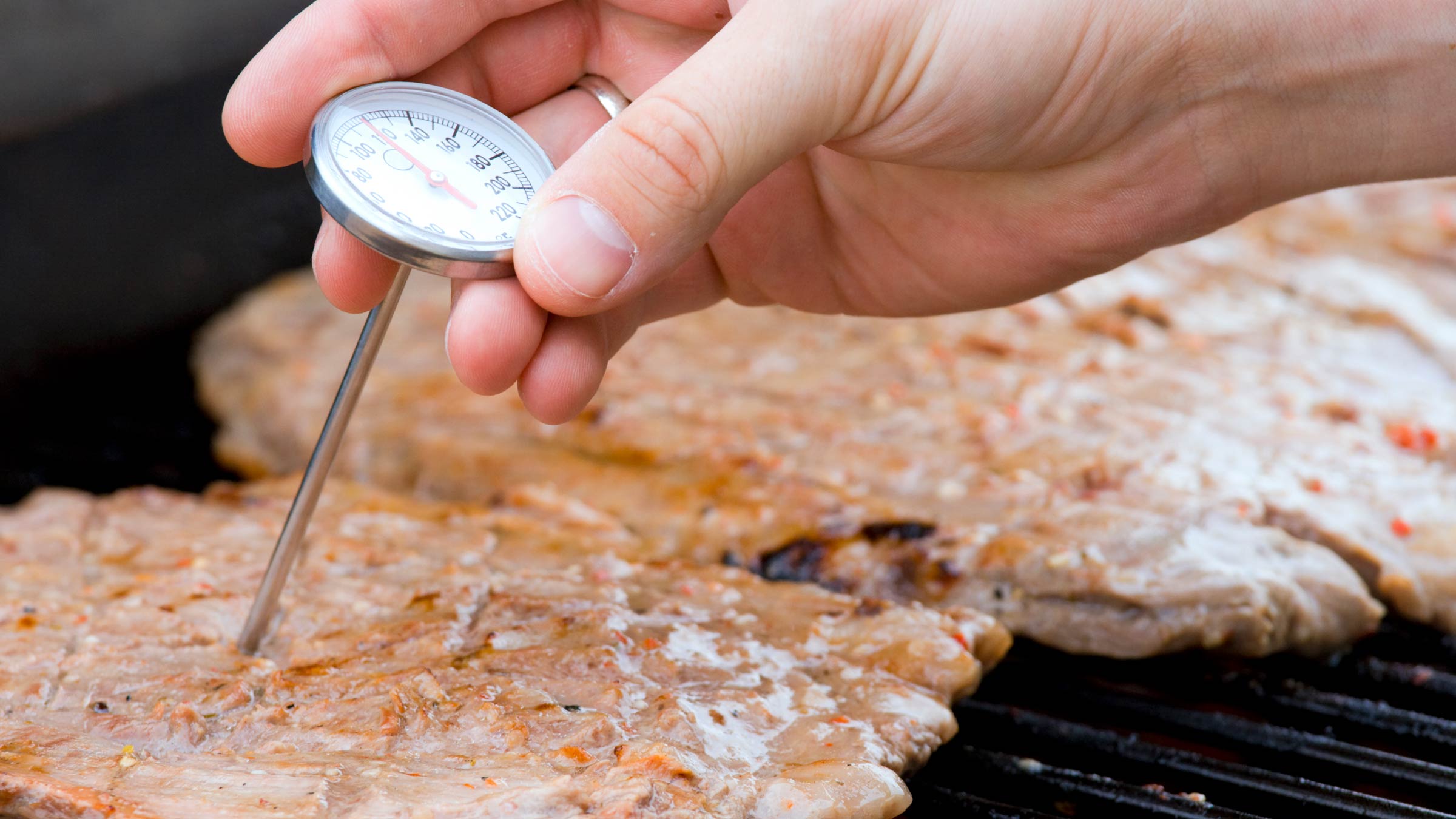
Your friends and family are over. The main course is resting on a platter. The side dishes are coming off the stove and out of the fridge. Do you give much thought to preventing your guests or yourself from getting sick because of undercooked meat or a chilled dish that’s gotten too warm?
If you've been among the 1 in 6 Americans who become ill each year from eating contaminated food or beverages, you might have learned the hard way to take food safety seriously.
And if the topic isn't at the top of your mind when rushing to feed guests, I understand. You've had countless cookouts, family gatherings and holiday meals without problems.
But foodborne illness shouldn’t be taken lightly. According to the federal Centers for Disease Control and Prevention, of those sickened each year, 128,000 are hospitalized, and I don't want that to happen to you.
You must be as conscientious as possible, like wearing your seat belt. You leave work not expecting to get into a car accident, but you take the necessary precaution anyway, right? The same should be true when it comes to food safety. No one goes to a gathering with family or friends expecting to get sick from the food.
Any party where food is set out to enjoy is an opportunity for foodborne illnesses to join the party as well. There are six simple precautions recommended by federal food safety experts to make sure unwanted bacteria don't spoil your fun:
1 Wash your hands.
This is always important, especially before and during food prep. If you're handling raw meat, wash your hands before you switch to other food preparation tasks, so you don't spread bacteria.
That means you shouldn't go from patting seasoning onto your protein to prepping your vegetables without a good hand scrub.
2 Don't cross-contaminate.
Just as hand washing is important, so is washing anything that comes in contact with raw meat. This includes cutting boards, knives, tongs and the countertop where food is prepared. That knife you use to cut the raw chicken? It needs to have a thorough washing in very hot water before peeling the potatoes! Remember, a "rinse off" isn't enough.
3 Watch the clock.
Refrigerate leftovers within two hours of setting them out.
When the outside temperature is 90 degrees or higher, keep cold dishes over ice and serve small portions at a time; one hour is the max for consuming foods if you can't refrigerate leftovers in that timeframe or keep them in a cooler with ice.
4 Chill it or heat it.
The rule is simple but frequently ignored. Always keep cold foods cold and hot foods hot. Placing cold foods over ice helps ensure the temperature doesn't go above 40 degrees.
Keep warm foods at a temperature higher than 140 degrees on the grill, on the stove, with an electric warmer or in a slow cooker. This prevents bacteria from growing on your food.
5 Check the temperature.
Firmness and other tactics for confirming doneness aren't reliable. A cooking thermometer inserted in the thickest part of the meat is the best tool to ensure your food has reached the recommended temperature.
As a rule of thumb, cook poultry to 165 degrees and fish, beef and pork to 145 degrees. You want to cook your ground meat to 160 degrees throughout. Never eat medium or rare hamburgers!
6Keep the raw meat separate.
Raw meat and juices can contain harmful bacteria, such as E. coli and salmonella, that can make you sick and cause diarrhea. Be careful to store the meat away from the produce and the other ready-to-eat foods in the fridge and grocery bags.
A best practice is to store these items on the bottom shelf so that any juices don't drip down on other foods.
7Use the app.
Want to know how long those leftovers will stay good? Keep advice handy on food storage times with the FoodKeeper App from the federal government, and learn more through foodsafety.gov.
If you experience food poisoning, seek medical attention if you have:
- Blood or pus in the stool
- Diarrhea that lasts more than five days
- Signs of dehydration, such as dizziness or thirst, when you can't keep down liquids
- A fever over 101 degrees with vomiting or diarrhea
Remember the food safety motto: "When in doubt, throw it out!"
No one wants to waste food, but food that could be unsafe isn't worth consuming.

Take the first steps to a healthier lifestyle
Ditch the fads and start taking real steps to improving your health with the nutrition and dietary experts from Ohio State.
Start today




